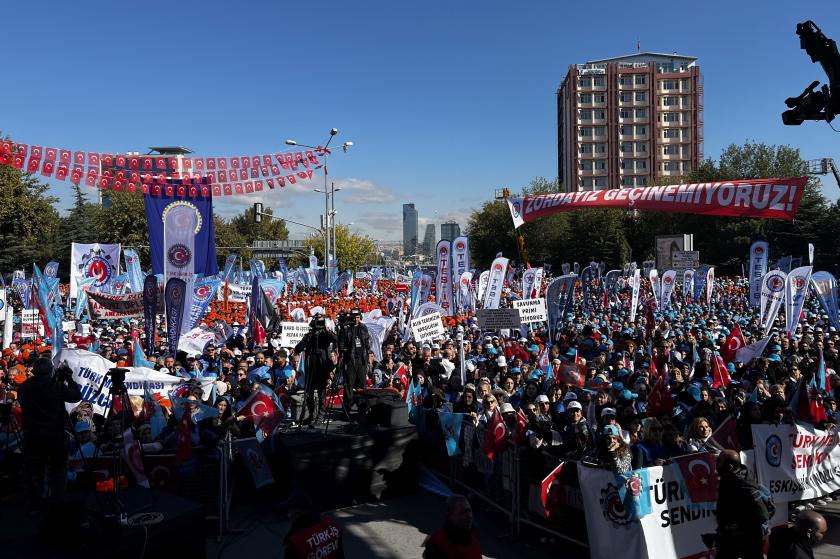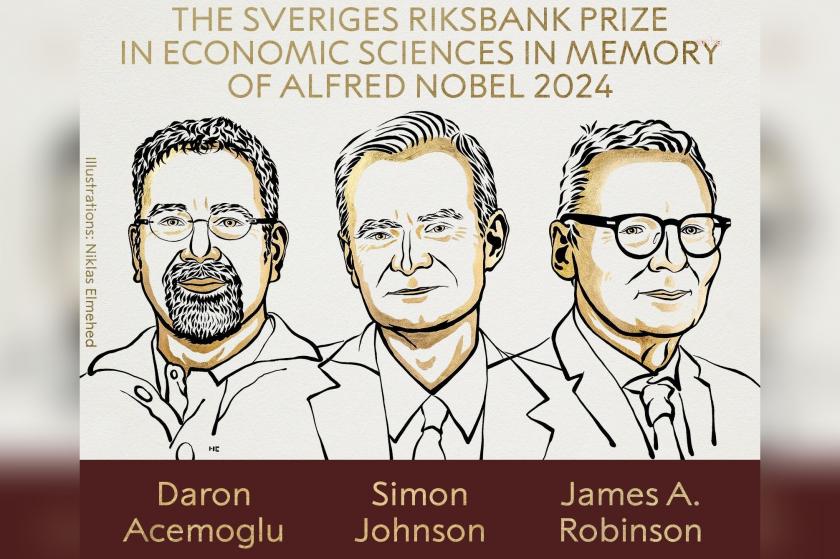22 October 2024 11:54
Even if those who greeted him yesterday with the words 'We have walked these paths together' are now trying to justify themselves by cursing him, the path they have walked has not changed.
 Yusuf Karadaş
Yusuf Karadaş

Fethullah Gulen is dead. Those who participated for years in the activities of the foundations and associations he founded, appeared in the media and praised his 'service' to the state are now cursing him. However, he never failed to serve imperialism and the monopoly bourgeois reaction, just like the representatives of the present government. However, since he lost the power struggle with his political twin, with whom he had walked together for 11 years from 2002 to 2013, he was declared as a "leader of a terrorist organisation" and cursed. From the anti-communist associations to 28 February, from the Great Middle East Project to the 15 July coup attempt, his history is really the history of the current government.
Gülen's involvement in founding and leading the Anti-Communist Association in Erzurum, where he was the imam of a mosque in the early 1960s, is considered the beginning of his political life. This was a period in which US imperialism specifically encouraged and supported the organisation of Islamist sects and communities in the countries neighbouring the Soviet Union. This policy, also known as the Green Belt Project, aimed to use Islamist organisations as a shield against the 'threat of communism'.
Names such as Necip Fazıl Kısakürek, whom President Erdoğan now regards as a 'leader', openly advocated 'supporting the USA against the communist threat'. In 1969, when the anti-imperialist, revolutionary youth led by Deniz Gezmiş protested against the 6th Fleet of US imperialism, the religious leaders led by Mehmet Şevki Eygi called for 'Muslims to help the state forces fighting against communism'.
Gülen, too, had shown his loyalty to the US imperialism by participating in the anti-communist associations at the very beginning of his political life.
In the 1970s, Gülen, who had organised his own congregation as a branch of Nurcism, openly supported the fascist military coup of 12 September. This support was not in vain, as the Özal years after the coup were a period of rapid growth and power for the Gülen sect. Turgut Özal, who dreamed of a 'Turkish world from the Adriatic to the Great Wall of China', especially after the collapse of the Soviet Union, specifically supported the establishment of schools and the organisation of Gulenists in the Turkic republics in this political context. The organisation of Gulenists in the former USSR countries was also encouraged by the US imperialism and NATO in order to integrate these countries into the neo-liberal capitalist system through 'moderate Islam'.
Gülen also supported the military intervention of 28 February 1997, the so-called 'post-modern coup', which forced the government of Necmettin Erbakan to resign, saying that 'the soldiers were more democratic than some civilians'. During this period, Gülen was respected and interviewed by all the important politicians of the time, from Alparslan Türkeş to Tansu Çiller, Mesut Yılmaz, Süleyman Demirel and Bülent Ecevit.
Following the report on the organisation of his sect within the police and army during the 28 February trial, Fethullah Gulen fled to the USA in 1999, where he remained until his death, citing 'health problems'. Nevertheless, his support for the 28 February trial was an important turning point in the intersection of Gülen's and Erdoğan's fates.
During the 28 February process, after the Welfare Party was closed down and replaced by the Virtue Party, the so-called 'youth' or 'innovators' of the party, such as Tayyip Erdoğan, Abdullah Gül and Bülent Arınç, left the party and founded the AKP in 2001.
Coincidentally, the foundation of the AKP coincided with the announcement of the Greater Middle East Project (BOP) by the US imperialism after the 11 September attacks in 2001 to shape the Middle East through 'moderate Islam'. The CIA's Middle East chief G. Fuller stated in his book "The Future of Political Islam" that within this project, the US imperialism should "support liberal and reformist Islamist forces such as Fethullah Gulen", referring to Erdoğan and his friends for Turkey. After the AKP won the general elections in 2002, Turkey was identified as the model country of this project through the Gülen-Erdoğan partnership. Although he later denied it, Erdoğan's declaration of himself as 'co-chairman of the BOP' in the first years of his prime ministership revealed the power behind his rise to power.
After the coup of 12 September 1980, the period of the Gülen-Erdoğan partnership was the period in which Turkey's neoliberal transformation took place at the fastest pace. The fact that $41 billion of the $49 billion privatisation in Turkey in the 28 years from 1985 to 2013 was carried out during the Gülen-Erdoğan partnership (2003-2013) explains why this government continued to be supported by the US-EU imperialists for a long time. In this transformation process, in addition to TÜSİAD, the capital organisations MÜSİAD (pro-AKP) and TUSKON (pro-Gülenist) were also supported by state loans and tenders.
When AKP-Erdoğan and the Gülenists eliminated their rivals in the state through the Ergenekon-Balyoz operations and the 2010 referendum and completely seized power, it was the beginning of a struggle between them.
In the Mavi Marmara incident in 2010, Erdoğan wanted to turn the reaction against Israel into support against him in the domestic public opinion, as he is trying to do now, while the Gulenists were against such a move that could draw the reaction of the US imperialism.
The Oslo process, which Erdoğan started in order to get the support of the Kurds, was exposed and Hakan Fidan, the Undersecretary of the National Intelligence Organisation (MIT), was called to testify, which announced the transformation of this contradiction into a struggle for the conquest of state institutions. The priority of the Gülenists was the liquidation of Kurdish politics and the domination of their organisation in the Kurdish geography through the KCK operations that started in 2009. These developments were followed by Erdoğan's move to close the dershanes in order to deal a blow to the Gülenists in the field of education, where they were strongest, and the operations of 17-25 December (2013), in which the Gülenists exposed the bribery and black money relations of Erdoğan and his circle through audio recordings.
The partnership officially ended when Erdoğan launched a purge of Gulenists in the police and judiciary, defining them as an "armed terrorist organisation" organised under the name FETÖ/PDY.
In 2014, Gulenists tried to pressure Erdoğan in the international arena by raising the issue of MIT trucks carrying weapons to jihadists in Syria. The coup attempt of 15 July 2016 was the last move of the Gulenists. Erdoğan turned the coup attempt into an opportunity to declare a state of emergency and establish de facto one-man rule. With the support of the MHP and through the arrests of Kurdish politicians and cross-border operations, the foundations of the current regime were laid.
In this process, we witnessed the coup attempt of one of the twin brothers, who set out in the name of 'liberating the country from military tutelage and democratising it', and the other who turned this attempt into a tool for establishing a repressive regime in which democratic gains were completely suspended.
After the coup attempt, the Erdoğan government officially asked the USA for Gülen's extradition, but did not insist on it. It was limited to an attitude that turned this event into political propaganda material for itself in domestic public opinion. Erdoğan, who said, 'We did not give them what they asked for', knew that the debate about FETÖ's political pillars would turn around and hit his own power.
Gülen died as someone who spent his life in the service of imperialism and collaborative reaction. Even if those who greeted him yesterday with the words 'We have walked these paths together' are now trying to justify themselves by cursing him, the path they have walked has not changed. Therefore, without a struggle against the present government, neither the 'political pillar of FETÖ' can be dealt with nor an independent and democratic future can be built in favour of the people against imperialism and the collaborating exploiters.


